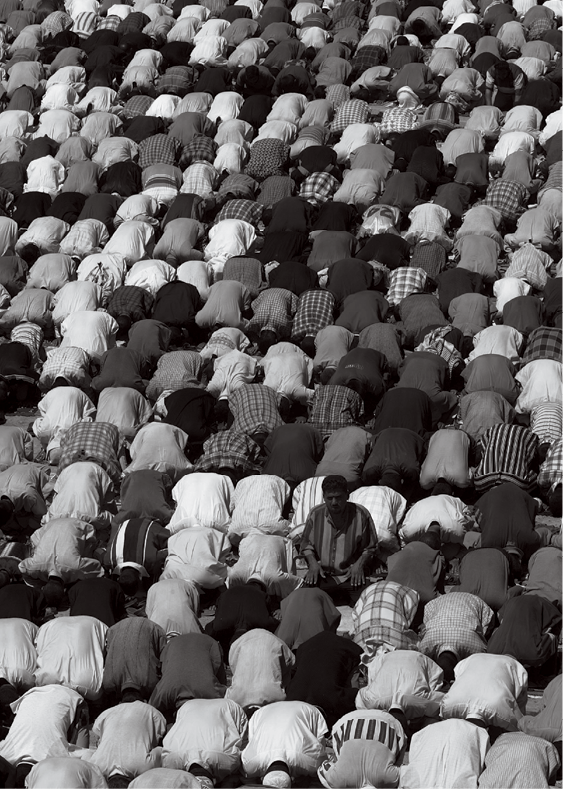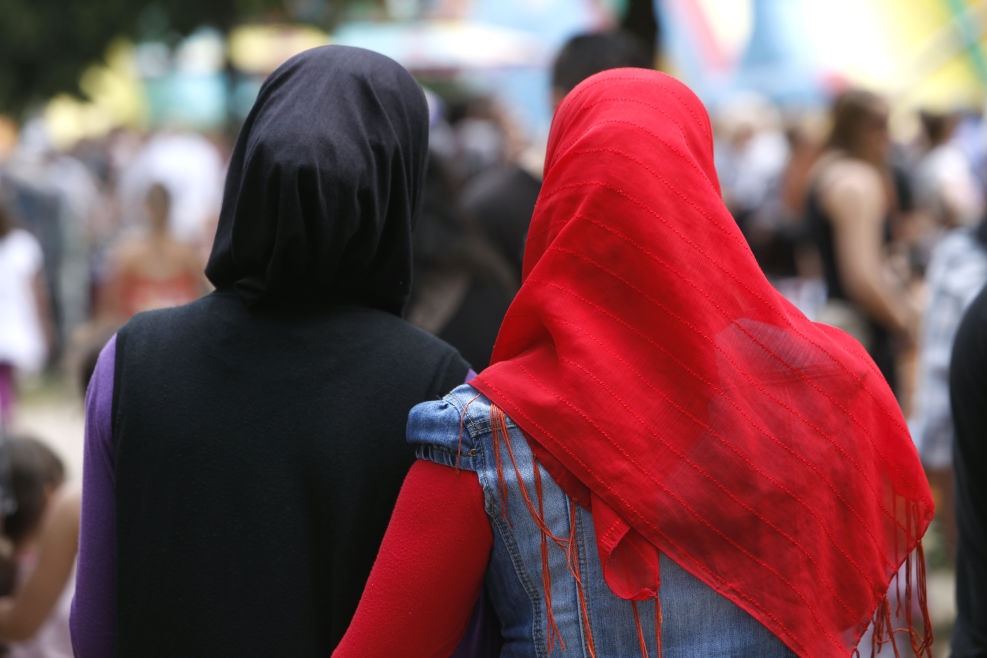The notion of maslaha, as a legal term, has given rise to numerous debates since it was first used, principally by the ulama of the Maliki school, against the firm opposition displayed by the Zahiri school, and in particular by Ibn Hazm. These quarrels were very often ill founded, and it seems that very often it was, more than anything, a question of defining relations to the sources and to the corpus of the Sharia.
In more recent times, this notion has been used to justify all sorts of new fatawa (plural of fatwa), even some that were manifestly in contradiction with obvious proofs from the Qur’an and the Sunna, as in the case of rules concerning interest (riba) and inheritance.

It is therefore important to recall briefly the early researches and studies carried out in this area, not only in order to understand the scope of maslaha but also to evaluate the advantages to be derived from applying it in the light of developments over time and from the diversity of contexts. The Imam Malik referred to the notion of istislah, which meant “to seek the good.” In his legal research, he therefore used the example of the Companions—who formulated numerous legal decisions in the light of the common good while respecting the corpus of the sources—to justify the fact that “to seek the good” (istislah) is one of the fundamentals of the Sharia and so is part of it. After the work of codification carried out by alShafii, the ulama, as we have recalled, began to set out distinctions between what were actually the sources and their areas of legal application, the hierarchy of values among the regulations, and so on.
Numerous ulama, such as al-Juwayni, in his Al-burhan, and the Mutazila Abu al-usayn al-Basri, in Al-mutamad fi usul al-fiqh, (both ulama lived in the eleventh century) refer to this notion in one way or another. At that time, the polemic had already begun concerning the definition of the exact meaning of this notion and its status within the Islamic legal apparatus. It is Abu Hamid al-Ghazali who, with his strict codification, provided the clearest framework for tackling this question from that time to the present. In his Al-mustasfa min ilm al-usul, he states very precisely: “In its essential meaning, al-maslaha is a term which means to seek something beneficial [manfaa] or avoid something harmful [madarra]. But this is not what we mean, because to seek the beneficial and avoid what is bad are the objectives [maqasid] intended by creation, and good [sahah] in the creation of humanity consists in the attaining of these objectives [maqasid]. What we mean by maslaha is the preservation of the objective [maqasid] of the Law [shar], which consists in five things: the protection of religion, life, intellect, lineage, and property. Whatever ensures the protection of these five principles [usul] is maslaha; whatever goes against their protection is mafsada, and to avoid it is maslaha.”
This general definition defines a structure on which almost all later ulama were to agree, for he refers implicitly to the sources without making a distinction between the objective of the good, which is found in the Qur’an and the Sunna, and how it is humanly stipulated when nothing is clearly stated in the sources. In fact, with this definition al-Ghazali placed himself above the disputes of the ulama, and when this light was shed on the subject, a more detailed codification in the nature of things opened the way for a precise understanding of maslaha and what was at stake in the legal argument; his contribution was therefore immense and central.
Al-Ghazali, still referring to the broad meaning of maslaha, mentions three different types: al-daruriyyat (the imperative), a category which has to do with the five elements of maqasid al-sharia (here in the sense of the objectives of the Law) listedearlier, that is, the protection of religion, life, reason, lineage, and property; al-hajiyyat (the necessary, the complementary), which has to do with the prevention of anything that could be a source of difficulty in the life of the community, without leading to death or destruction; and finally al-tahsiniyyat and al-kamaliyyat (the enhancing and the perfecting), which concern anything that may bring about an improvement in religious practice. These three levels cover all that can be considered as the masali (common good) of the human being considered as a person and as a worshipper of God, and this categorization was hardly ever questioned in debate and polemic.
What did give rise to disagreements and conflicts in the legal field was the question of discovering whether there was a real need for this notion within the Islamic legal framework or whether al-maslaha should be considered an independent source, though supplementary, of Sharia (and thus a part of the latter, and whose scope should be limited), or, finally, whether it should simply be seen as part of another source, such as qiyas (analogy).

These various positions also rely on another qualification that distinguishes three types of masali (this time differentiated according to their classification, not according to their hierarchical importance), by which the ulama established a typology based on the degree of proximity of al-maslaha to the sources. If al-maslaha is based on textual evidence (i.e., a quotation from the Qur’an or the Sunna), it is called maslaha mutabara (accredited), and it must necessarily be taken into account. If, on the other hand, the maslaha invoked is contradictory to an undisputed text (nass qati), it is called mulgha (discredited) and cannot be taken into account. The third type occurs when there is no text: the Qur’an and the Sunna do not confirm but neither do they reject a maslaha that became apparent after the age of Revelation. A maslaha of this type is call mursala (undetermined), for it allows the “ulama” to use their own analysis and personal reasoning in order to formulate a legal decision in the light of the historical and geographical context, using their best efforts to remain faithful to the commandments and to the “spirit” of the Islamic legal corpus where no text, no “letter” of the Law, is declared.
It is this last type that has given rise to much debate and polemic (the analysis is beyond the scope of this study). Suffice it to say here that the main cause of disagreement was the fear, on the part of those opposed to the very concept of al-maslaha al-mursala, that such a notion, with such broad scope, might then allow the ulama to formulate regulations without reference to the Qur’an and the Sunna on the basis of exclusively rational and completely free reasoning, all in the name of a remote hardship or “an anticipated difficulty.”
These were the main arguments of the Zahirite school, as well as numerous Shafii and even Maliki ulama who did not recognize al-maslaha al-mursala—not referring back to the sources—as a legal proof; they saw in it a specious (wahmiyya) proof, not valid for legislation. This was the same instinctive fear of an approach that was purely rational and not connected with the Law that pushed al-Ghazali to restrict work on al-maslaha to the area of the application of qiyas (analogy), which, of its nature, requires a close link with the text for the deduction of the cause (illa) on which analogical reasoning rests.
Some ulama in the course of history have formulated judgments in the name of al-maslaha and sometimes completely changed and disturbed the manner and conditions of the use of legal instruments within the Islamic framework. The particularly interesting example of the famous fourteenth-century Hanbali jurist Najm al-Din al-Tufi seems to have partly given them just reason to be fearful: al-Tufi ended up giving al-maslaha priority over texts from the Qur’an and the Sunna, which, according to him, should be applied, according to Mahmasani, only “to the extent that the common good does not require anything else.” Moreover, in our own times, we see very strange “modern Islamic legal decisions” based on “modern maslaha” that are clearly contradictory to the sources. The notion of al-maslaha al-mursala thus sometimes seems to justify the strangest behavior, as well as the most obscure commercial dealings, financial commitments, and banking investments, under the pretext that they protect, or could or should protect, “the common good.”
But this kind of excess was not typical among those who supported taking al-maslaha al-mursala into account as an authentic and legitimate source of legislation. They believed that the formulation of Islamic legal decisions should take place in the light of the Qur’an and the Sunna and in agreement with them and, moreover, upon certain demanding conditions (even if al-maslaha al-mursala should be considered as an independent source in the absence of any text).
A careful study of the various opinions (for and against al-maslaha al-mursala) shows that the ulama are in agreement on numerous important points, even considering the conditions stipulated by supporters of the concept, among the first of whom was the alim of Grenada, al-Shatibi (fourteenth century). We find in his works a series of conditions and precise definitions regarding recognition of the “common good” as a reliable juridical source, which restrict its application and prevent the ulama from having recourse to al-maslaha without justification. Without going into too much detail, we may summarize the three generally recognized main conditions for situations when it is sure that no text has been enunciated:

